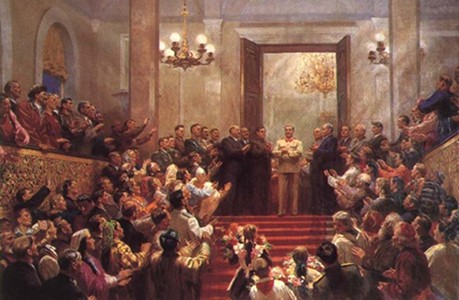
“... [Lenin and Stalin] rejected the theory that society develops everywhere under the same conditions and at the same tempo. They were convinced that while the class conflict was universal, it was also variable, and the working-class of each country or group of countries must conquer power separately in its own time and fashion and under its own leaders. They were also convinced that the conditions of the Russian Empire were such that the Russian working-class would be the first to succeed. Having conquered, the Russian workers would have to face the universal disapproval and hatred of the capitalist States and defend the Socialist State to the uttermost.”—J. T. Murphy, Stalin: 1879-1944.
Notable Figures
A Guide to Notable Figures in the History and Development of Stalinism
Soviet Union
 Joseph V. Stalin (1879-1953)
Joseph V. Stalin (1879-1953)
After the RSDLP split in 1903, Stalin became a member of the Bolshevik party. Throughout the Civil War, Stalin ascended the ranks of the government through extensive bureaucratic manoeuvering and in 1922, received the majority vote to become the General Secretary of the Communist party. He held the position until his death in 1953. (biography)
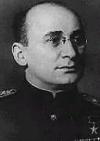 Lavrenti Beria (1899-1953)
Lavrenti Beria (1899-1953)
Organised Bolshevik group in Baku in 1917; 1921-31 directed GPU in Georgia. First Secretary Georgian CP from 1931; leader of NKVD from 1938 until Stalin’s death. Responsible for countless murders on his own initiative as well as on Stalin’s orders; summarily shot shortly after Stalin’s death.
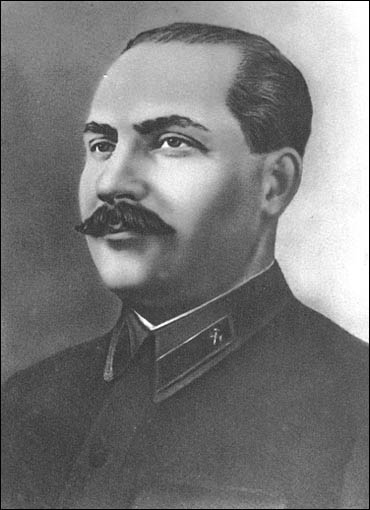 Lazar Kaganovich (1893-1991)
Lazar Kaganovich (1893-1991)
Undeviating Stalinist in various state and party posts. He was removed from all his positions when Khrushchev became premier of the Soviet Union in 1958.
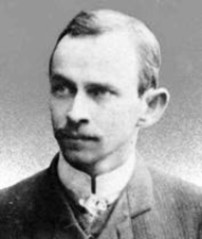 Otto Kuusinen (1881-1964)
Otto Kuusinen (1881-1964)
Kuusinen was one of the leaders of the 1918 revolution that established the short-lived Finnish Socialist Workers’ Republic. After the government was toppled he fled to Moscow where he became a prominant figure in the Comintern. During the Russo-Finnish War Kuusinen was appointed to head the government in the Finnish territories occupied by the Soviets. In 1940 he returned to the USSR where he held prominant positions within the Supreme Soviet, the CPSU and the Soviet Academy of Sciences.
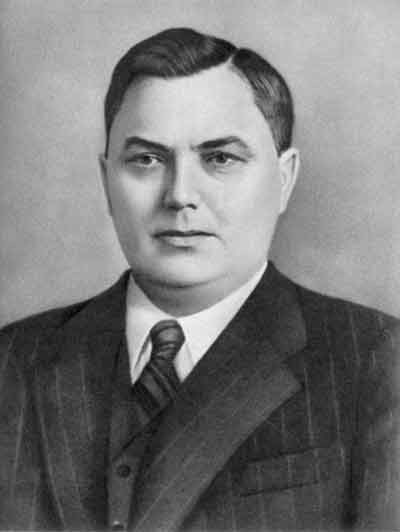 Georgy Malenkov (1902-1988)
Georgy Malenkov (1902-1988)
In 1920 Malenkov joined the Communist Party, and in 1925 became Stalin’s personal secretary. He held various high ranking positions within the government, including a full member of the Politburo. After Stalin’s death he became Premier and began a process of economic reform. He held the position for two years until he was forced to resign, but remained in the Politburo. In 1956 he attempted unsuccessfully to depose Khrushchev and was expelled from the Party.
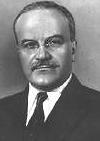 Vyacheslav Mikhailovich Molotov (1890-1986)
Vyacheslav Mikhailovich Molotov (1890-1986)
Joined R.S.D.L.P. in 1905 and a Bolshevik since 1909; met Lenin while in exile in London. In 1920, he was elected to the Central Committee of the Communist Party, and by 1924 he became a member of the Politburo. Molotov became president of the Comintern from 1928-1934, president of the Council of People’s Commissars, 1930-41, and foreign minister, 1939-49, 1953-56, in which capacity he was the signatory for the Pact with Hitler in 1939. In 1957 Molotov was removed from his post in the Central Comittee, and became USSR ambassador to Mongolia due to his opposition to Khrushev’s de-Stalinization program. (biography)
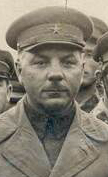 Kliment Voroshilov (1881-1969)
Kliment Voroshilov (1881-1969)
Voroshilov joined the R.S.D.L.P. in 1903 and was elected to the Central Committee in 1921 and remained a member until 1961. He became a full member of the newly formed Politburo in 1926, remaining a member until 1960. Close associate of Stalin, he was heavily involved in Stalin’s Great Purge of the late 1930s. (biography)
Stalinism Outside of the Soviet Union
Figures associated with governments where Stalinism became the official ideology of the State
Albania
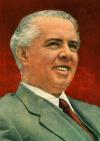 Enver Hoxha (1908-1985)
Enver Hoxha (1908-1985)
Albania’s first Communist head of government. He is perhaps best remebered for his polemics with the post-Stalin leadership of the USSR and with Maoist China. In 1948 Hoxha broke relations with Yugoslavia and drew closer to the Soviet Union, and to Joseph Stalin, for whom he held a life-long admiration. After Stalin’s death and Krushchev’s “secret speech,” Hoxha broke with the USSR and formed a bloc with the Communist Party of China in denouncing the post-Stalin USSR as “revisionist” and “social-imperialist.” Eventually, Hoxha broke with China in 1978 after the death of Mao Zedong and China’s rapprochement with the West. (biography)
Bulgaria
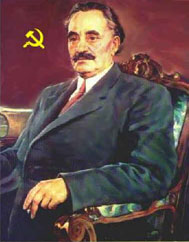 Georgi Dimitrov (1882-1949)
Georgi Dimitrov (1882-1949)
General Secretary of the Comintern from 1935 to its dissolusion in 1943. After WWII and the following Bulgarian revolution, Dimitrov returned to Bulgaria and was immediately appointed Prime Minister of the newly created socialist government. He constructed Bulgaria along Stalinist lines, and by 1946 proclaimed the formation of the Bulgarian People’s Republic. Two years later, due to his lax adherence to the Kremlin, he was eased out of power in early 1948. (biography)
China
 Wang Ming (1904-1974)
Wang Ming (1904-1974)
Early leader of the Communist Party of China and rival of Mao Zedong, Wang was a founder of the 28 Bolsheviks and served as Director of the CPC’s delegation to the Comintern. He was an ardent support of the CI’s policy in China, which brought him into bitter conflict with Mao and his supporters. In 1935 he called for a united front with Chiang Kai-shek to fight the Japanese invasion of China.
Czechoslovakia
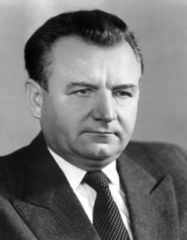 Klement Gottwald (1896-1953)
Klement Gottwald (1896-1953)
Gottwald was a founding member and leader of the Communist Party of Czechoslovakia and a secreatry of the Comintern. After the Second World War he became Prime Minister and then President of Czechoslovakia.
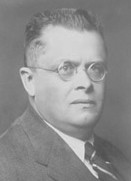 Bohumír Šmeral (1880-1941)
Bohumír Šmeral (1880-1941)
Czech Social Democrat who initially supported World War I, was a right-wing leader of the Czechoslovak Communist Party. In 1926 he became a member of the ECCI and remained in Moscow for several years, a faithful deputy of Stalin. After the Munich Pact (1938), he returned to the Soviet Union.
Germany
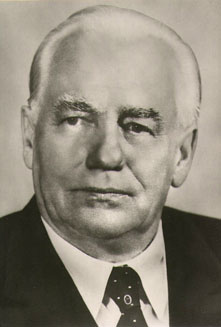 Wilhelm Pieck (1876-1960)
Wilhelm Pieck (1876-1960)
Pieck was a founding member of the Communist Party of Germany. After Hitler came to power Pieck went to the USSR and was active in the Comintern. After WWII he returned to Germany where he became president of the German Democratic Republic.
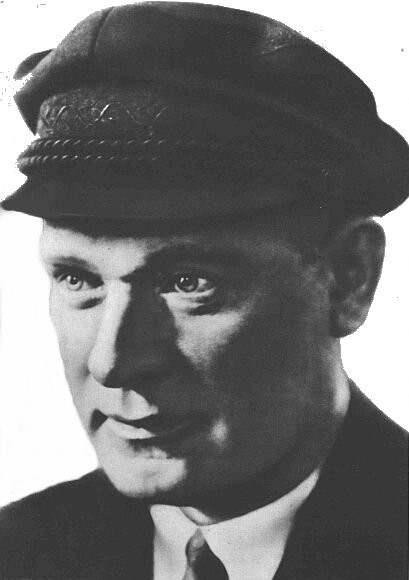 Ernst Thälmann (1886-1944)
Ernst Thälmann (1886-1944)
Thälmann held prominant positions in the Communist Party of Germany and the Comintern. During the Third Period he dutifully conformed to the Comintern’s ultra-rightism. Thälmann was arrested during the violence that followed the Reichstag Fire in 1933 and spent 11 years in prison until he was executed in Buchenwald concentration camp.
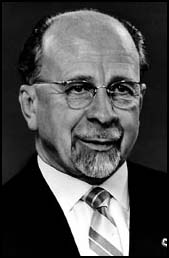 Walter Ulbricht (1893-1973)
Walter Ulbricht (1893-1973)
Ulbricht joined the Communist Party in 1920 and quickly became a member of the central committee. Shortly thereafter, he traveled to Moscow where he studied at the International Lenin School, and then served as a Comintern representative in Spain during the civil war. In 1960 he headed the German Democratic Republic and oversaw the contruction of the Berlin Wall.
Hungary
 József (“John Pepper”) Pogány (1886-1937)
József (“John Pepper”) Pogány (1886-1937)
Pogány participated Bela Kun’s short-lived Hungarian Soviet Republic in 1919. After its fall, he fled to the USSR and became active in the Comintern. In 1921 he took part in the Kun-directed March Uprising in Germany before travelling to the U.S., where he was credited with transforming the factional infighting from bitter disputes into cutthroat politics. On Stalin’s orders, Pogány oversaw the expulsion of the Trotskyists from the Communist Party. He was later executed in the USSR during the Great Purge in 1937.
 Mátyás Rákosi (1892-1971)
Mátyás Rákosi (1892-1971)
Rákosi was a member of Bela Kun’s short-lived Hungarian Soviet Republic in 1919. After its fall, he fled to the USSR. In 1940 he became active in the Comintern. A steadfast supporter of Stalin, Rákosi became General Secretary of the Hungarian Communist Party after the Second World War. During de-Stalinization, he was removed from his position at the behest of the Soviet Politburo in 1956.
Mongolia
 Khorloogiin Choibalsan (1895-1952)
Khorloogiin Choibalsan (1895-1952)
Backed by Stalin, Choibalsan ruled the Mongolian People’s Republic from the mid-1930s until his death in 1952.
North Korea
 Kim Il Sung (1912-1994)
Kim Il Sung (1912-1994)
Kim Il Sung was the General Secretary of the Workers Party of Korea and leader of the Democratic People’s Republic of Korea from 1948 until his death in 1994. Rejecting the de-Stalinization campaign in the USSR, Kim introduced the Juche Idea, which roughly means “self-reliance.”
Yugoslavia
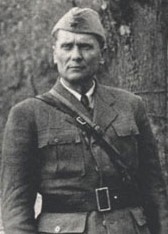 Josip Broz Tito (1892-1980)
Josip Broz Tito (1892-1980)
In 1934 Tito joined the Comintern in Moscow. Three years later he was appointed Secretary of Yugoslav Communist Party and then was officially appointed as General Secretary in 1939. Refused to take Stalin’s direction, and was expelled from the Cominform in 1948. Remained leader of the country till his death in 1980. (biography)
Non-Ruling Communist Parties
Figures associated with the promotion and defense of Stalinism in Communist Parties that have not ruled
Australia
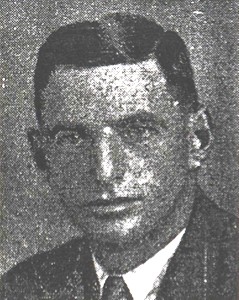 Lance Sharkey (1898-1967)
Lance Sharkey (1898-1967)
Foremost leader of the CPA from 1929 when Sharkey and Moxon received Comintern support to remove Kavanagh and implement the "social-fascist" policy. Jailed in 1949 for "sedition". Wavered in the period of the Sino-Soviet split. Although he was General Secretary at this time, his influence in the Party had declined, and Sharkey was on the side-lines by 1962. (biography)
Canada
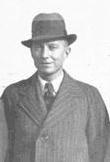 Tim Buck (1891-1973)
Tim Buck (1891-1973)
In 1921, Buck participated in the founding convention of the Communist Party of Canada and came to prominence as a supporter of Joseph Stalin, and became General Secretary in 1929 after the old party leadership had been purged for supporting Trotsky and others had been removed for supporting Bukharin. Buck remained General Secretary until 1964, and was a supporter of the Soviet line throughout his tenure. (biography)
France
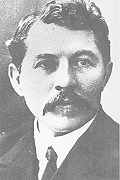 Marcel Cachin (1869-1958)
Marcel Cachin (1869-1958)
Cachin was one of the founding members of the Communist Party of France, long-time editor of L’Humanité and France’s first communist senator.
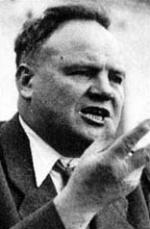 Maurice Thorez (1900-1964)
Maurice Thorez (1900-1964)
Thorez was the Communist Party of France’s Secretary General during the “third period” in 1930. He was elected to the Chamber of Deputies in 1932 and following the Comintern directive, formed a the Popular Front with the Socialist Party and the Radical Socialists and following the 1936 elections Leon Blum became Prime Minister of a Popular Front government. (biography)
Great Britain
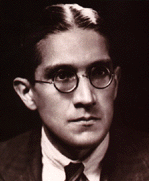 Rajani Palme Dutt (1896-1974)
Rajani Palme Dutt (1896-1974)
A member of the Independent Labour Party before joining the Communist Party in 1920, Dutt was a member of the Executive Committee of the CPGB from 1923 until 1965. He was a prolific writer and an influential party theoretician who also helped establish the Communist Party of India. A life-long Stalinist, he remained a staunch defender of the Soviet Union until his death in 1974. (biography)
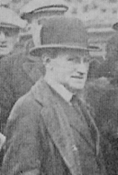 John Thomas (J. T.) Murphy (1888-1965)
John Thomas (J. T.) Murphy (1888-1965)
A member of the Amalgamated Society of Engineers and active trade unionist, Murphy was a representative of the Shop Stewards’ movement at the founding of the CPGB. He was an executive committee member of the CPGB and noted figure in Comintern and RILU matters who moved the resolution expelling Trotsky from the Comintern in 1927. In 1932, Murphy clashed with the Dutt-Pollitt leadership and resigned from the party. He went on to join the Socialist League. (biography)
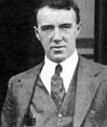 Harry Pollitt (1890-1960)
Harry Pollitt (1890-1960)
Pollitt joined the Communist Party of Great Britain in 1920. Elected General Secretary in 1929, he was forced to resign his position for supporting the British declaration of war on Nazi Germany. Reinstated in 1941, Pollitt remained General Secretary until illness forced him to retire in 1956. (biography)
Greece
 Nikos Zachariadis (1903-1973)
Nikos Zachariadis (1903-1973)
General Secretary of the Communist Party of Greece (KKE) from 1931 to 1956. He was appointed, by order of Stalin and the Comintern, General Secretary of KKE in 1935. Zachariadis conducted the military operations of the communist-led Democratic Army of Greece (1946-1949). In May 1956, he was expelled from the post of General Secretary. Zachariadis spent the rest of his life in exile in Siberia, initially in Yakutia and later in Surgut, where, as KGB claims, he committed suicide in 1973
Italy
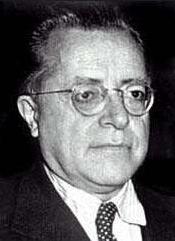 Palmiro Togliatti (1893-1964)
Palmiro Togliatti (1893-1964)
Togliatti headed Comintern operations in Spain during the civil war and returned to Italy in 1944 to head the CP until his death. Regarded as the founder of “Euro-Communism,” he was the first to draw “euro” conclusions from Khrushchev’s Speech in 1956. Developed the “Italian Road to Socialism” put forward at the World Congress of 1960, ultimately leading to the ‘historic compromise’ formulated by Berlinguer. (biography)
Japan
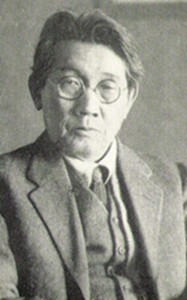 Sen Katayama (1859-1933)
Sen Katayama (1859-1933)
Born Yabuki Sugataro, Katayama was an early member of the American Communist Party and co-founder of the Communist Party of Japan in 1922. He moved to Moscow soon after the Bolshevik Revolution where he became a prominant figure in the Comintern until his death in 1933.
Portugal
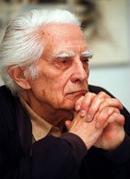 Alvaro Cunhal (1913-2005)
Alvaro Cunhal (1913-2005)
One of the most pro-Soviet Communist leaders in western Europe, Cunhal joined the Communist Party in 1931 and entered the Party’s central committee in 1936. Jailed frequently, he escaped in 1960 and spent his exile in USSR until 1974. In Russia in 1961 he was again appointed Secretary General of the Portuguese Communist Party as an absentee. He retained this post until his appointment as President of the Party in 1992. (biography)
Spain
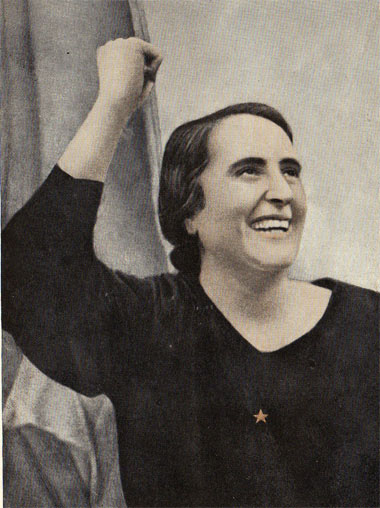 Dolores Ibárruri (1895-1989)
Dolores Ibárruri (1895-1989)
Ibárruri served as one of the main propagandists for the Republicans during the Spanish Civil War. She is best known for uttering the famous words “¡No Pasaran!” meaning “They (the fascists) shall not pass!” Following the fall of Madrid to Franco’s forces in 1939, Ibárruri went into exile in the Soviet Union where she was granted Soviet citizenship. She continued her political activity while living in the USSR and she was named General Secretary of the PCE in 1944. (biography)
United States of America
 Alexander Bittelman (1890-1982)
Alexander Bittelman (1890-1982)
Bittelman was a Russian-born leader of the Yiddish Language Federation and central committee member and influential theoretician of the CPUSA.
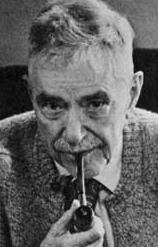 Earl Browder (1891-1973)
Earl Browder (1891-1973)
Browder led the Communist Party USA from 1932 to 1945. An advocate of the Popular Front, Browder supported Roosevelt’s New Deal and called for no-strike pledges during WWII. In 1944 he declared that capitalism and communism can co-exist peacefully. At the war’s end Browder’s policies came under increasing attack and he was expelled in 1945.
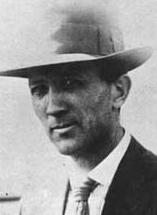 William Z. Foster (1881-1961)
William Z. Foster (1881-1961)
Long-time General Secretary of the Communist Party USA and trade union leader, Foster was a ardent supporter of Stalin. (biography)
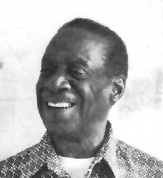 Harry Haywood (1898-1985)
Harry Haywood (1898-1985)
Haywood joined the African Blood Brotherhood in 1922. Three years later he joined the CPUSA. Afterwards he traveled to Moscow where he studied and became active in the Comintern where he dealt with the issue of oppressed nationalities. During the Spanish Civil War Haywood served in the Abraham Lincoln Brigade.
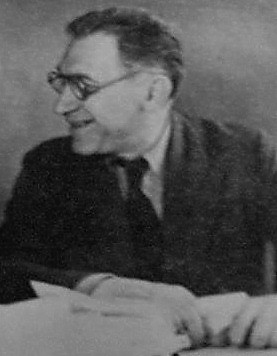 Moissaye J. Olgin (1878-1939)
Moissaye J. Olgin (1878-1939)
A founding member of the Workers Party, Olgin was an early organizer in the Jewish section of the Party, and was a founder of the Yiddish Communist daily the Morning Freiheit, which he edited until his death. He was also a member of the National Committee of the CPUSA for many years. (biography)
Post-Stalin Trajectories
| After the death of Stalin in 1953, a number of oppositions and alternatives gradually emerged in different countries which formerly rigidly followed the political line coming from Moscow. | |
|
Under Mao, the Chinese CP shifted its focus from the decimated urban proletariat to the rural peasantry. Maoism’s theoretical foundations remained true to its Stalinist heritage: ‘bloc of four classes,’ revolution by stages and nationalism. After Krushchev's denunciation of Stalin at the 20th Congress and his overtures to the West, the Maoists developed a worldwide organisation in opposition to Moscow. [Definition, See also Chinese Communism] |
Eurocommunism was a current among the Communist Parties, mainly in Europe, in the wake of the events of 1968 up to the early 1980s. In some cases the Communist Party split. The Eurocommunists sought autonomy for their own national parties relative to the leadership claims of the Soviet and Chinese parties, and emphasised the interests and culture of their own country as against those of the USSR etc. [Definition] |
|
Beginning from the 1960s particularly, the Stalinist countries faced increasing political and economic isolation and stagnation, and a number of critics began to advocate restoration of the market, with the working class retaining political power. This was a necessary retreat, but the market socialists embraced the market as fully compatible with socialism, constituting a development, not a retreat. When implemented (for example, the USSR under Gorbachev), these programs invariably led to the restoration of capitalism. [Definition] |
The Comintern held a leading position in the National Liberation movement in the wake of World War Two, and developed a number of national leaders whose aim was to secure the independence of their countries from foreign domination, not necessarily to implement a social revolution. Indeed, in all of these countries, the proletariat was a small minority and the forces of production either under-developed or developed very lopsidedly to meet the interests of the imperial power. [Definition] |
|
Taking inspiration from the Chinese and Cuban Revolutions some Communist Parties left the city and the urban working class and based themselves in the countryside. They recruited young intellectuals in the city and took them to bases in the jungle, supported by the peasantry. These parties became military forces, politically independent of and often hostile to the working class. [Definition] |
In the 1960s a number of individuals, particularly academics in Eastern Europe, began to develop a humanist direction within Marxism, emphasising personal freedom as against state leadership, subjectivity rather than structure, and ethics rather than science. A similar movement also emerged from Communist Parties in the English speaking world and in the Trotskyist movement. [Definition] |